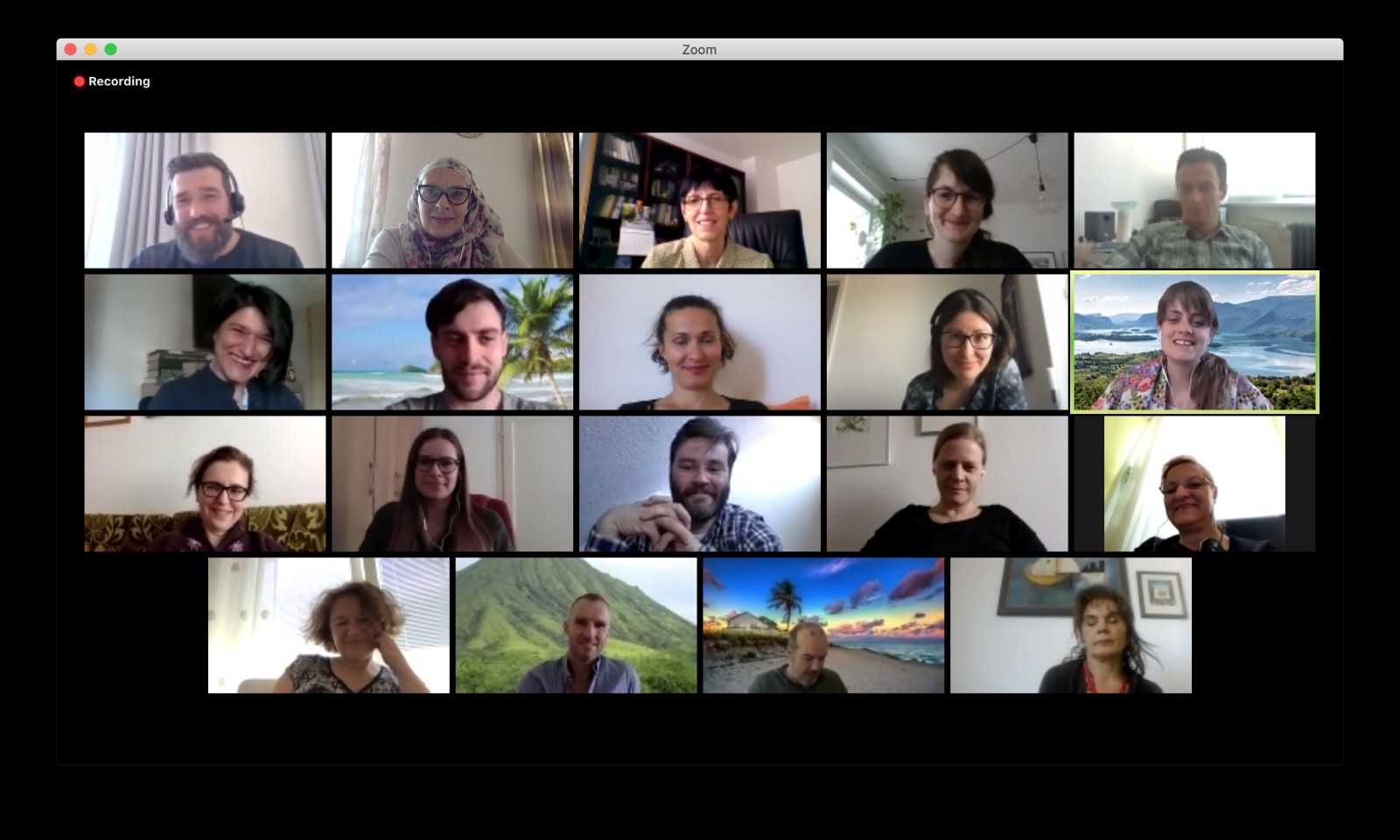Recently the project team organised a kick-off meeting with the Working Group Lead Experts. This meeting was supposed to be held in Bosnia and Herzegovina, but due to the Covid-19 pandemic it was moved to an online event.
The Covid-19 pandemic has meant that many functions of society have had to shut down, and that moving and travelling around freely is banned in most places. For us, in the BiH ESAP project, it meant we needed to start rethinking our whole project and all its planned meetings and events. Namely, the approach of a successful implementation of the ESAP BiH 2030 project, and thus the development and adoption of in total four Environmental Strategies and Action Plans covering four different jurisdictions in Bosnia and Herzegovina (state level, the Federation of Bosnia and Herzegovina (FBiH), the Republika Srpska (RS), and the Brčko District (BD)), was meant to be undertaken in a participatory, bottom-up approach with relevant authorities, academia, the private sector, NGOs and individual experts. Throughout the next 24 months, six working group meetings were planned to be held for each of the four jurisdictions, covering 7 different thematic areas each. In other words, a total number 56 meetings with over 200 participants were planned to be conducted in Bosnia and Herzegovina in the period May to July 2020 with the aim to define thematic goals and targets, set preliminary indicators and assess possible interlinkages of thematic goals and targets.
Developing a COVID-19 strategy for the project
Given the restriction enforced in BiH in order to mitigate the spread of COVID-19 virus, the project team, together with its stakeholders, had to think about how to ensure a successful and effective continuation of project activities which would not undermine the quality and defined project implementation timeframe while still ensuring a participatory approach to ESAP BiH 2030 development. A waterfall, or linear approach, which would deliver an already predefined set of outputs to stakeholders without a former bottom-up discussion would have been the easiest model in times of restrictions, but would ultimately weaken a two-way, open conversation among different groups of environmental stakeholders in Bosnia and Herzegovina and the ability for each of them to hear and be heard by the others.
Innovating in the virtual space
Therefore, SEI and its partners concluded that during the time of inability to conduct physical meetings, online platforms will be used to facilitate working group meetings and discussions for ESAP development. With the adjusted approach to project implementation, three rounds of online meetings and consultations will be held in the period May to July 2020 resulting with the development of initial ESAP working version which shall be further developed until end of 2021 and finally adopted in the first quarter 2022 by the Council of Ministers of Bosnia and Herzegovina.

As the “group photo” above illustrates, SEI examined virtual meetings by turning a planned two-day meeting with Lead Experts and the SEI team into a virtual event. Even though challenging and requiring additional follow-up and support, it run smoothly with meaningful discussions and exchanges.
“Stakeholder engagement and communication are vital parts of this project to be able to progress and come up with a robust and ambitious yet realistic Environmental Strategy for Bosnia and Herzegovina. In challenging times like this, in order to deliver what we all agreed to deliver, we need to adapt and think creatively. Instead of workshops and meetings occurring over several days, we will see shorter, more frequent meetings happening online, which are way more environmentally friendly, logistically easier, faster and provides opportunities for more free flows in communication and enables creativity and effective work. Like the one that took place last week.”
-Bernardas Padegimas, project manager.
The aims of the virtual workshop
The aims of the event were to get an opportunity to e-meet each other and to understand everyone’s role in the project. During the meeting we also discussed the overall project’s methods and timeline, key deliverables for the working groups for 2020 and the situation analysis that the Lead Experts have been working on, for their specific area. Of course, talks about Covid-19 took place and suggestions on how to move forward in this new situation were put forward.
What is the role of the Working Groups and Lead Experts?
As stated, the final Environmental Strategy and Action Plan (ESAP) for Bosnia and Herzegovina will consist of 4 jurisdiction ESAPs (BiH, FBiH, RS and BD) where each of them will have 7 chapters focusing on 7 specific environment-related topics, the same topics as the EUs environmental policy areas. The Lead Experts are the facilitators for their specific thematic area and working groups for the BiH level, entities and Brcko District. They will have an overall responsibility to assure effective and efficient work of the group and timely delivery of the different ESAP chapters.
The working groups’ thematic areas are as follow:
- WG1: Water
- WG2: Waste
- WG3: Biodiversity and nature conservation
- WG4: Air quality, climate and energy
- WG5: Chemical safety and noise
- WG6: Resource management
- WG7: Environmental management
After the online meeting, one of the lead experts, Melina Valjevac commented on the challenges she is facing within her working group, chemical safety and noise:
“As a lead expert for chemical safety and noise I am honoured to be a member of the team working to identifying strategic goals, objectives and measures that will ensure compliance of the BiH environmental sector with the European standards. Despite the huge potential in the chemical production, sales, export/ import for the growth of the country’s economy, the chemical management is still not well regulated. The improvement of the chemical management and coordination at all administrative levels will be a major future challenge for the BiH authorities. Balancing the interests of the private sector and protection of the environment will be difficult but not impossible. I am sure that this Working Group will come up with solutions that could work both for the economy and for the environment.”
-Melina Valjevac, Lead Expert for ESAP Working Group on Chemical Safety and Noise.
About the project
The ESAP 2030+ project is as an adequate response of the Swedish Embassy to Bosnia and Herzegovina to a request made by the authorities at the state level, the Federation of Bosnia and Herzegovina (FBiH), the Republika Srpska (RS), and the Brčko District (BD) to support the development of their environmental strategies.
The BiH ESAP will be a document that includes environmental strategies and action plans for the FBiH, RS and BD as well as BiH level actions. The development of BiH ESAP 2030+ is entrusted to the Stockholm Environment Institute (SEI) from Sweden, who will provide a critical tool for relevant authorities to reach environmental sustainability and improved citizen health and well-being for current and future generations across the country.
Read more about the project here: https://www.sei.org/projects-and-tools/projects/bosnia-herzegovina-environmental-policy/






